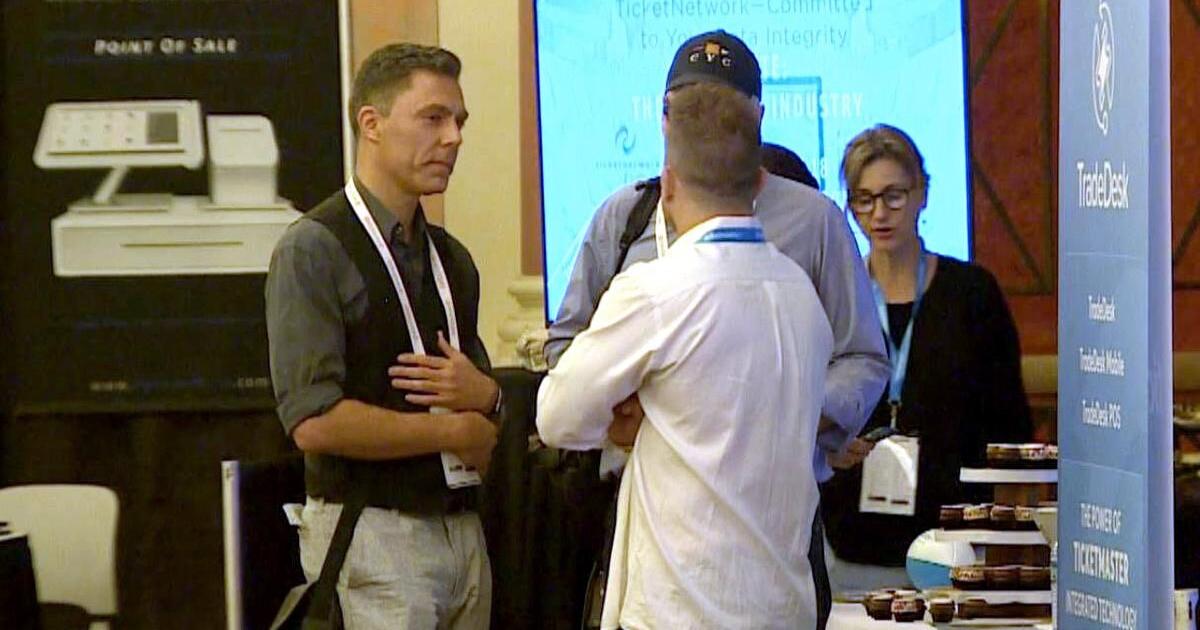A Toronto Star/CBC investigation into Ticketmaster’s collusion with scalpers to resell hundreds of thousands of tickets to sports and music events at inflated prices forms the backbone of a new U.S. consumer-protection lawsuit against the world’s biggest ticketing company.
The groundbreaking undercover investigation featured reporters, posing as scalpers, who received assurances from Ticketmaster employees that they could use bots with impunity to mass purchase box office tickets well beyond the limit for regular customers — in breach of both Ticketmaster’s terms of use and U.S. and Canadian law. Ticketmaster even designed a special platform for scalpers to facilitate reselling tickets bought using hundreds of different accounts and invited the reporters to sign up.
Filed last week in U.S. federal court, the new lawsuit alleges that Ticketmaster and its parent company Live Nation used deceptive pricing tactics that ultimately cost consumers billions in inflated prices and fees for tickets illegally acquired by the brokers.
Brought by the U.S. Federal Trade Commission and seven U.S. states, the lawsuit is the latest in a series of cases, including multiple class actions certified in Canada, that build upon information revealed in the Star/CBC investigation.
“The FTC alleges that in public, Ticketmaster maintains that its business model is at odds with brokers that routinely exceed ticket limits. But in private, Ticketmaster acknowledged that its business model and bottom line benefit from brokers preventing ordinary Americans from purchasing tickets to the shows they want to see at the prices artists set,” the U.S. consumer protection agency wrote in a press release.
The FTC is an independent agency of the U.S. government that is tasked with enforcing civil antitrust laws and guarding against unfair and deceptive business practices. Neither the FTC nor Ticketmaster responded to a request for comment.
Hidden camera video from the Star/CBC investigation has been cited in several lawsuits, with lawyers saying it has been particularly helpful to have evidence straight from the mouths of Ticketmaster employees.
“You guys were the ones who broke this thing open,” said Jean-Marc Leclerc, lead counsel for the class action suit filed in Ontario, which received certification last April. “It was your investigation that gave us all of the inside information, the hidden camera videos with the Ticketmaster people.”
In 2018, reporters from the Star and CBC travelled to a convention in Las Vegas posing as small-time Canadian ticket scalpers. They approached the Ticketmaster booth and listened as sales staff pitched a proprietary software program called TradeDesk, designed to help bulk buyers resell thousands of tickets.
Asking if Ticketmaster would bust them for using illegal bots or multiple Ticketmaster accounts, the reporters were told they had nothing to worry about.
“We’ve spent millions of dollars on this (TradeDesk) tool, so that last thing we want to do is, you know, get brokers caught up to where they can’t sell inventory with us. Or kind of like another way to think of it, we’re not trying to build a better mousetrap,” the Ticketmaster employee said.
This attitude represented a significant shift in the ticketing industry’s attitude toward scalpers, the investigation found. Before online box offices, sellers did everything they could to crack down on scalpers working on the pavement outside venues. Now, the secondary market represents a way to increase revenues.
“Ticketmaster loves resale tickets, provided they are sold on their site, because it means they make more money,” Leclerc said. “It’s pretty pretty simple: They get a fee when the ticket is sold on the primary market to the first customer, and then they get extra fees if the ticket goes on their resale site.”
The allegations in the FTC suit mirror those found in the Ontario class action, Leclerc said, but add key internal Ticketmaster documents that corroborate the Star and CBC’s findings.
One spreadsheet in particular lists five resellers who collectively controlled 6,345 Ticketmaster accounts and possessed 246,407 concert tickets. The internal Ticketmaster spreadsheet notes “serious negative economic impact” if the company moves to an eight-ticket limit for all buyers.
The records show that Ticketmaster has “internal records showing that they know full well the resellers have hundreds of accounts (and) … saying if we restrict these guys from buying tickets, this is going to have a massive impact on our revenues,” Leclerc said.
After the Star/CBC report, the Canadian Competition Bureau launched an investigation into TradeDesk and the use of bots, but later found they did not breach federal law. An unrelated complaint centred on Ticketmaster’s hidden fees, was settled earlier this year for $6 million.
The use of automated computer software to get around ticket purchase limits is banned by many states and provinces. The use of multiple accounts to buy tickets for a single person or company is banned by Ticketmaster’s own terms of use.
In Ontario, the Ticket Sales Act has a wide range of potential penalties, right up to a full refund of the price paid for a resale ticket.
“So if you paid 500 bucks for your Taylor Swift tickets, if it is found that Ticketmaster knew that bots had been used to purchase those tickets, there is a potential for an outright refund of the $500 you paid,” Leclerc said.
The next step for the class action will be an email, sent out in the coming months to Canadians (excluding residents of B.C., who have a separate lawsuit) who bought a resale ticket on Ticketmaster since Jan 1, 2015 — an estimated 700,000 to 900,000 people.



